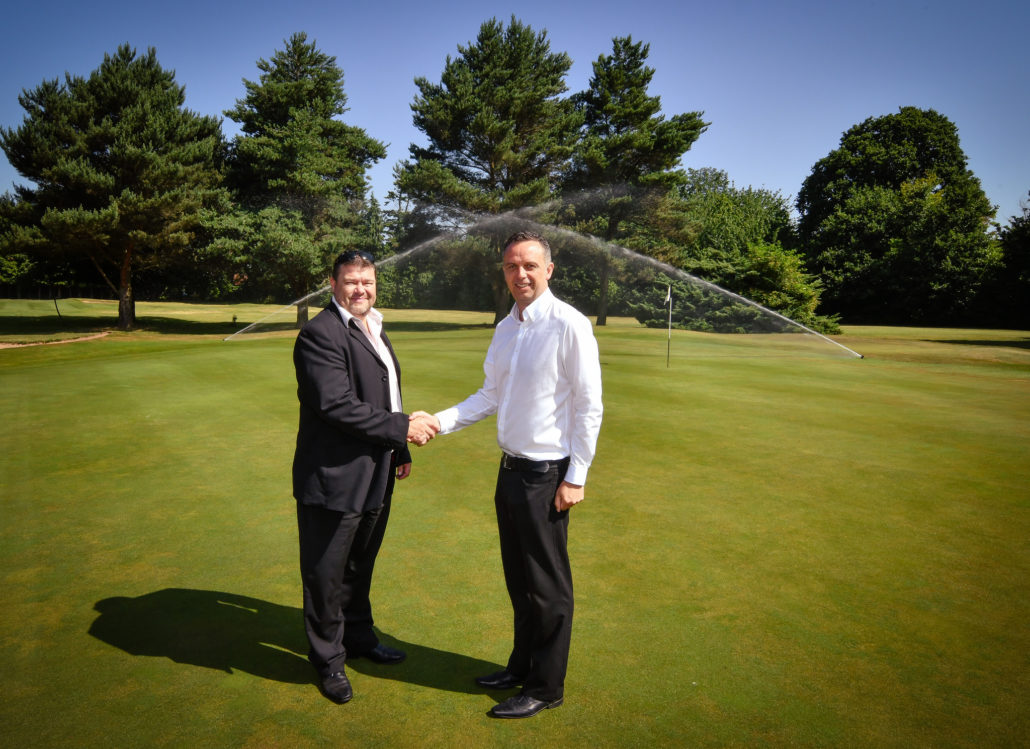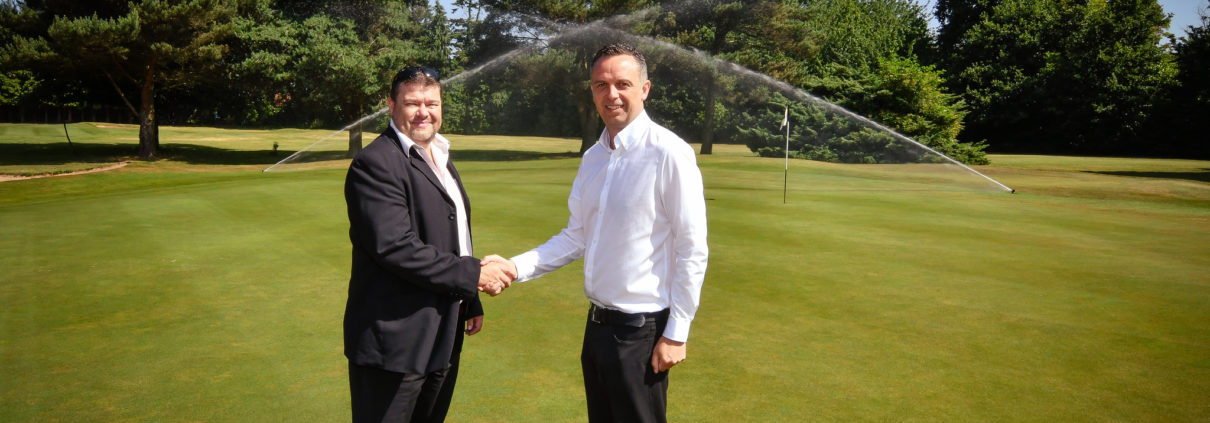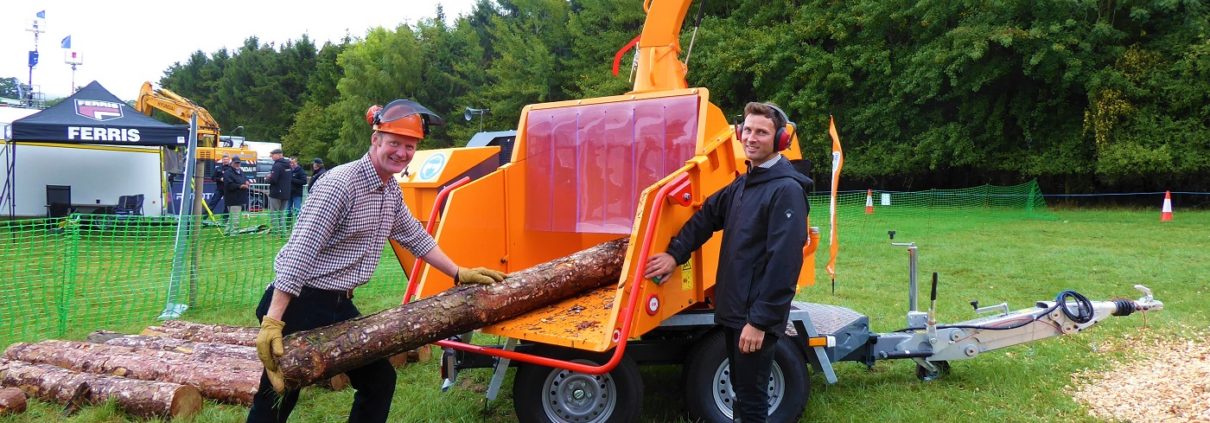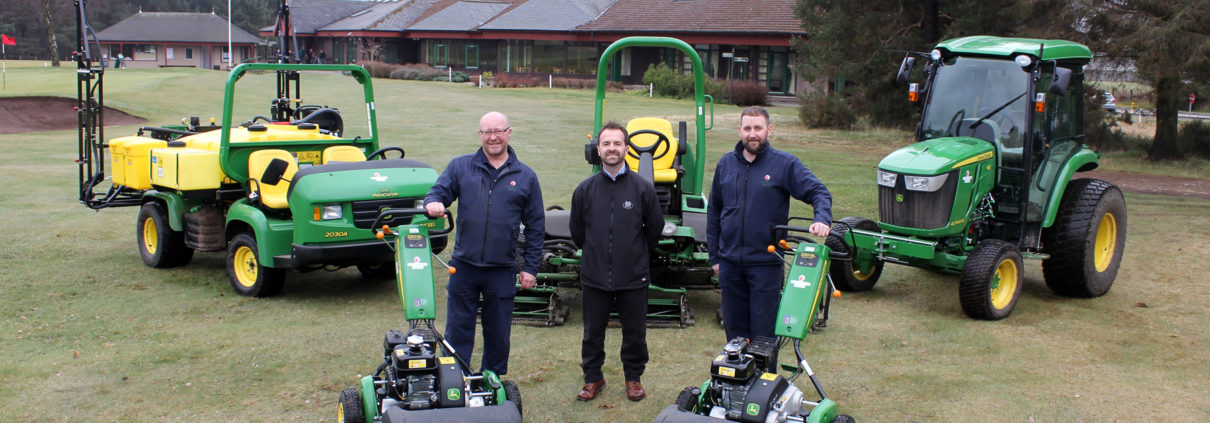Coventry Hearsall Benefits From Reesink Finance
Coventry Hearsall Benefits From Reesink Finance: Coventry Hearsall Golf Club is one of the first clubs to benefit from Reesink Turfcare’s fixed term finance for irrigation.
Course manager Jonathan Oldknow says he is ‘delighted’ with the new Toro Lynx system including sprinklers for the tees, greens and approaches, which replaced a 40-year-old irrigation system struggling with constant leaks and breakages. In fact, Jonathan attributes the club’s ever-increasing reputation to the success of the ‘Total Solutions’ package it now boasts with its Toro irrigation system and fleet of machinery.

Jonathan says: “A new irrigation system is no light investment, but in this competitive industry we recognised the need for modern technology to stay at the top of our game. Miles ahead of anything we’ve ever had before, choosing the Toro Lynx system was a big statement from us saying ‘this is where we want to be heading.’”
Buying irrigation on finance takes away two of the biggest headaches Reesink Turfcare finds exist for those embarking on an irrigation installation: installation is sooner and there is less upfront capital outlay.
Brett Mander, Coventry Hearsall’s course chairman, explains further how the club arrived at the decision to go with Toro: “We launched a full tender evaluation, starting with a number of suppliers before whittling them down to three.
“UK distributor of Toro Reesink Turfcare won us over with its presentation, which gave us confidence that its package and aftercare support would best suit the needs of the club. Out of all the suppliers, Reesink offered the most flexible solution over a period of time that matches our investment and growth strategy at Coventry Hearsall.”
Gone are the days of fixing leaks, and with peace of mind that the club has water on demand: “The main beauty of the system is the accuracy it affords us,” says Jonathan. “We take moisture metre readings to identify where water is needed and adjust individual sprinkler heads accordingly, targeting areas with reassuring success.
“We are one step ahead with our new Toro system rather than on the back-foot with our previous one. As opposed to fighting fires just to keep the grass alive we are now able to focus on keeping the plant in optimum health, and will be able to do so for as long as I’m a greenkeeper, and then some.”
Flexible and transparent, Reesink’s strong relationship with a proven financial partner means it can offer some very competitive deals over one to ten years. Payment plans can be monthly, quarterly, or annually and clubs can finance through hire purchase (HP) or lease.
Alongside Toro irrigation, Coventry Hearsall plans to continue using Toro machinery long into the future, too. According to Jonathan: “Toro provides very useable machinery that is of the highest quality. With the best mowers on the market, we know we will always get the best results for our course.”
Brett concludes: “Our Toro ‘Total Solutions’ package has been instrumental in helping us to maintain and elevate our reputation as a premier golf club in the Midlands. Word is out about the quality of our greens and our membership is now full with a waiting list; put simply, the package has been successful in making us successful.”
For more information, visit: reesinkturfcare.co.uk
For the latest industry news visit turfmatters.co.uk/news
Get all of the big headlines, pictures, opinions and videos on stories that matter to you.
Follow us on Twitter for fun, fresh and engaging content.
You can also find us on Facebook for more of your must-see news, features, videos and pictures from Turf Matters.

















